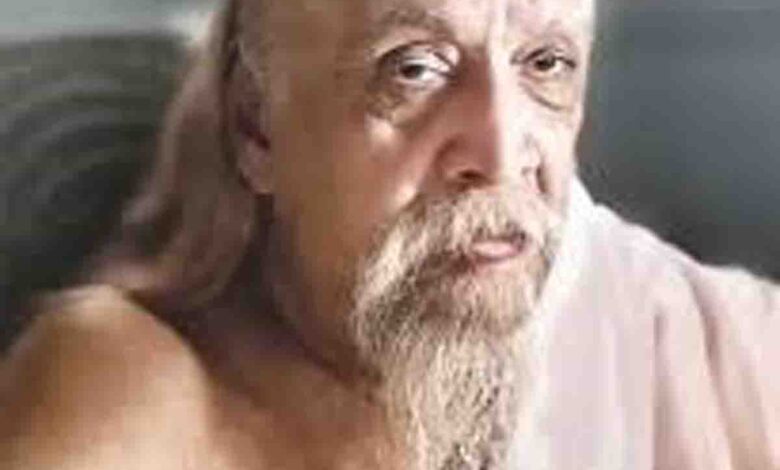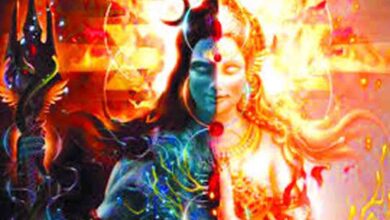India’s Hindu-Muslim discord: Domination, dilemma and destiny

VIEWPOINT
 Romit Bagchi
Romit Bagchi
Jawaharlal Nehru wrote to his friend V K Krishna Menon with anguish of guilt that the Partition had excited Hindus tremendously and all their wrath had turned against the Congress for agreeing to it.
In line with the majority view among the Hindus, many leaders occupying the higher echelons of the Congress felt that as the country had been partitioned on the basis of Muslim League-propounded two-nation theory, there was no reason why India should not follow the line of cultural nationalism based on the nation’s civilisational ethos, regardless of whether that meant Hindu identity politics.
Aghast, Nehru resolved to stonewall this rollback. It was not because he was not proud of India’s unique heritage. He was rather invincibly convinced that it was the civilisational ethos- the golden thread as he termed it- that had kept Bharat united from the north to the south over millennia of time. But at the same time, he believed that India must move ahead in the direction of a vibrant composite nationhood, shunning all divisive rags of the past.
After the thumping victory in the country’s first parliamentary election, Nehru’s stature in the party became stronger. Sardar Vallabhbhai Patel’s death gave him an unshakable grasp on the reins of the government and the party. Yet Nehru was worried. Endowed with a keen political sense, he knew that ignoring the Hindu reality in the ground level politics might slowly but steadily alienate it from the majority community, eroding the groundswell it enjoyed. So he decided to combat this challenge in his own way. He conceived a two-pronged strategy.
First, he urged the Muslims to empathise with the pre-Islamic ethos of Indian culture. This is an interesting subject to study: the curious disinclination among the Muslim elite as well as the mass to imbibe the cultural heritage of pre-Muslim India. The historian BR Nanda in his book ‘The Making of a Nation’ wrote that though the Muslims of Arabia and West Asia would cherish some of the heroes of pre-Muslim era, the Muslim elite in the Indian sub-continent believed that history began with Prophet Muhammad and the Arab conquest of India while the prior Hindu-Buddhist experience was irrelevant for them. “Indian Muslims accepted the great figures of ancient Persia and ancient Greece but not the heroes of ancient India as their intellectual progenitors; the Ramayana and Mahabharata could not become part of their literary heritage as the Shahnama and Sikandarnama,” he wrote.
Now let us see what Nehru said while addressing the teachers and students of Aligarh Muslim University. “I am proud of our inheritance and our ancestors who gave intellectual and cultural pre-eminence to India. How do you feel about this past? Do you feel you are also sharers in it and inheritors of it and, therefore, proud of something that belongs to you as much as to me? Or do you feel alien to it and pass it by without understanding it or feeling the strange thrill that comes from the realisation that we are the trustees and inheritors of this treasure?”
Furthermore, to help the Congress maintain its political supremacy in Hindu majority India, the Congress fell back upon a pragmatic tactic based on the differentiation between ‘public discourse’ and ‘private discourse’. Nehru firmly believed that India as a State could not survive except as a secular one with secularism meaning equality before the law of the followers of all religions prevailing in the country. So he was adamant that secularism must be robustly espoused in the public sphere with stress on territorial nationalism as opposed to cultural nationalism. However, in the private sphere of realpolitik, he made room for the party’s tactical manoeuvring in line with the majoritarian emotions identified with cultural nationalism.
The Nehruvian dichotomous discourse doubtless helped the Congress reign for years in the domain of electoral politics buoyed further by its charismatic leadership.
Some scholars who have done mammoth research on the tangled discourses of communalism and secularism in the peculiar Indian context hold that what Sri Aurobindo wrote in his Vande Mataram weekly during the turbulent Swadeshi movement days spelling out the ideological content of free India’s national discourse is a complex though inclusive formulation that transcends the dichotomy between communalism and secularism. “The different world religions representing different world cultures that have already found a habitation in India will remain here always, form elements of the common national life and contribute to the evolution of the composite culture of modern India. The Hindu culture, however, on account of its age and its superior numerical strength, will always form the groundwork of this composite Indian culture and civilisation. The dominant note of Hindu culture, its sense of the spiritual and universal, will, therefore, be the peculiar feature of this composite Indian nationality.”
Astute Nehru chose this complex yet comprehensive formulation in his philosophical and practical discourses, striving to fuse the dominant note with other notes to steer the evolution of a composite, inclusive culture. The Bharatiya Janata Party too, in its ideological articulation, has been professing the same view. But what has gone wrong with them now?
Under the mounting pressure of BJP’s aggressive saffronised agenda, Congress has chosen to slam the door on the dominant note, switching from the worn-out concept of lopsided secularism to a uncanny rollback to the antiquated socialistic doctrine of redistribution of property.
The grand old party should rid itself of its ideological dubiety to remain relevant in the national political space. It can no longer afford to remain caught between two stools. Instead of overlooking the mighty Hindu reality, it must recast its ideological moorings pragmatically as Pandit Nehru sought to do without abdicating its raison d’être as a pan-India unifying force.
The BJP, on the other hand, has been playing the dominant note all too riotously while ignoring and even attempting to crush other elements, particularly the Muslim element.
It seems as though the party has been practising ‘bahishkaar’ and ‘tiraskaar’ as regards the Indian Muslims as part of a well-crafted strategy to cleanse (parishkaar) them of their suspected divided loyalties. Maybe they have a long-term plan which might finally culminate in ‘puraskaar’ for those Muslim brethren who would choose assimilation in the country’s cultural mainstream while adhering to their Islamic faith and heritage.
Whatever the saffron party’s long-term scheme is, India must assimilate the Muslim element, no matter how long, testing and gory the process may be. Otherwise, India’s destiny to become a spiritualising and universalising force in the world will remain unfulfilled forever.






